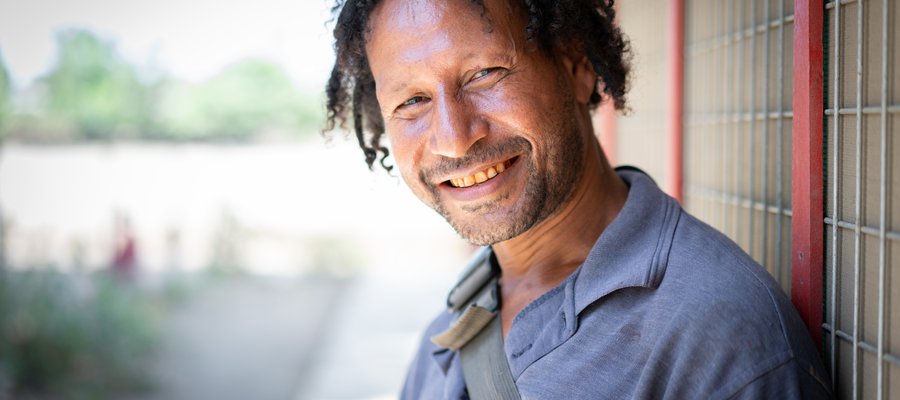Why the leprosy community cannot afford to ignore mental health

Leprosy is a disease that causes skin lesions and a loss of feeling on the skin. It can cause complications that lead to amputations and other disabilities. All of this is well documented. However, we need to get better at recognising that a leprosy diagnosis can also cause mental health problems.
Leprosy is a socially stigmatised disease – it affects not just the physical, but the mental and social, as well. If we only treat leprosy physically, we are not treating it completely.
Written in collaboration with Chiranjivi Sharma and Ruth Shrestha, both have experience of mental health counselling at Anandaban Hospital, Nepal.
Stigma, rejection, and isolation cause huge problems
There has not been a lot of research into the mental health consequences of a leprosy diagnosis, but Chiranjivi and Ruth both have experience of working in one of the largest leprosy hospitals in the world in Aanandaban, Nepal, and they know that there is a real and significant link.
This is Chiranjivi’s perspective,
“When you first receive the diagnosis there are a lot of fears that run through your head. These fears are based on what you’ve seen and heard about leprosy; you worry that you’ll be rejected by your family and your community; you worry that you’ll become disabled; you worry that you’ll never get married and will never have a job. Sadly, people affected by leprosy often think that they are sinful people and unlucky ones.
“Because of the stigma and misconceptions surrounding leprosy, a leprosy diagnosis can be a scary thing. Sadly, some of these fears can also become reality. I think it would be wrong of us to ignore this dangerous cocktail of feelings that can come with a leprosy diagnosis.”
The limited research that has been conducted so far in Nepal suggests that, whilst around a third of the population as a whole suffers from depression and anxiety, this number increases to 50% in people affected by leprosy.
There are lots of way to treat this
Ruth is currently working as a mental health counsellor in Anandaban, having taken over from Chiranjivi. Here’s what she said about her work now,
“We use a people-centered approach in our counselling. We listen to people talk about the problems they’re facing, we reflect on their feelings with them, and we challenge any irrational beliefs they might have about the stigmas that are associated with leprosy, encouraging rational beliefs instead. We help them to see the strengths in their life, we develop coping mechanisms, and we help them create a plan to get them to where they want to be.
“We also provided space for group therapy, where people who have recently been diagnosed with leprosy can hear from people who were diagnosed longer ago. This is really valuable for new patients as they hear about how they can overcome the unpleasant feelings and challenges they’re facing now.
“Talking with families is also really important for the mental health of people affected by leprosy. When I go and visit them or invite them to the hospital, we can work down to break down some of the stigma and misconceptions surrounding leprosy. By doing this we can make a path for people to be welcomed back into the family. All of us feels better when we can benefit from the love and support of family.”
Their approaches work, but we need more and more of it
Chiranjivi and Ruth have seen people affected by leprosy be completely transformed by mental health support at Anandaban hospital; people arrive in a bad way, with anxiety, depression, anger, and sleeping problems, but then they return to their communities and become respected members of the community.
Chiranjivi and Ruth’s message on mental health is that it works, but we need a lot more people to be provided with the skills to do this work with people affected by leprosy and more research into the experience so that we can better target our efforts.
Mental health and leprosy are undoubtedly linked, but the good news is that we have the tools to tackle this.